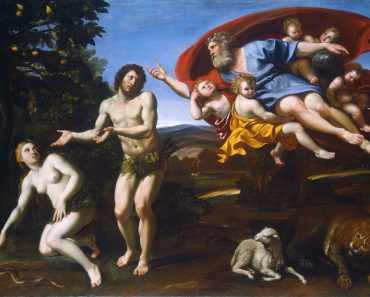
I AM THE HANDMAID OF THE LORD
A Talk delivered by Louis Cecilia Adu-Poku (Rev. Fr)
DATE: 15TH AUGUST 2013
VENUE ST. MARY SANCTUARY BUOHO.
The words that normally come from a person can depict who the person actually is.
In the NT only seven words of the Blessed Virgin Mary are recorded despite her appearances in other passages albeit quietly or unnoticed. These include six brief phrases and a slightly longer Magnificat Luke 1:46-55
The phrase “I am the handmaid of the Lord” which is our theme for this year and the topic for discussion is one of the seven words or phrase that poured from the lips of Mary.
The others are
Luke 1:34 -‘how can this be since i know no man?’
Luke 1:38 – ‘I am the handmaid of the lord, let it be done to me according to your word’
Luke 1:46-56- ‘the Magnificat’
Luke 2:48- ‘son why have you done this to us…your father and I have been searching for you’ (this evokes also Jesus’ first statement in the NT ‘why did you look for me? Of course as God he had already spoken and also through the prophets in the OT.
John 2:3-‘they have no wine’
John 2:5-‘Do whatever he tells you’
Other translations of ‘handmaid of the Lord’
Lord’s servant (New International Version)
Bond slave (New American Standard Bible)
Lord slave (Christian Standard Bible)
Maidservant (Weymouth New Testament)
A.In the Hebrew two words translate handmaid ‘shiphchah and ‘amah – female slave. Below are a few references from the Old Testament.
Gen 16:1 -Abraham had a slave girl (maidservant) called Hagar
Gen 25: 12- here are the genealogy of Ishmael son of Abraham by Hagar the Egyptian, Sarah’s slave girl
Gen 29:24 -Laban gave his slave girl Zilpah to Leah his daughter as her maid servant
Prov. 30:23- three things the world tremble, four it cannot bear up…a maid servant who displaces her mistress
B. It is used as a term of humility and respectful self deprecation in the presence of great men and prophets and kings
Ruth 2:13 may I prove worthy of your kindness my lord, you have comforted me, your servant with your consoling words but I am not like any of your servants. Would indeed that I were any of them.
I Sam 1:18 Hannah replied, think kindly of your maidservant
I Sam 28; 21 remember your maidservant
II Sam 14:6 Joab conspires with a woman to help David bring back his rebellious son Absalom. The woman disguises herself as a widow ‘your servant had two sons….
II Kings 4:2, 16 this servant of yours has nothing at home. Next time this year you will be fondling a baby. Please my lord she protested you are a man of God, do not deceive your servant.
C. It used to express a sense of religious humility
Hannah goes to pray, “O Lord of Host, if you look with pity on the misery of your handmaid” I Sam 1:11
Ps 86:16- “turn to me and have pity on your servant, save this child of your handmaid…”
Ps 116:16 “Lord I am your servant, the child of your maidservant”
In the NT the term appears only three times in the religious sense. Twice in Luke (1:38,48) and Galatians (4:22,23) and once in the Acts of the Apostles (2:18)
Some implications of Mary’s fiat.
Vocation of God’s servants in the OT
Mary’s words at the Annunciation “I am the handmaid of the Lord; let it be to me according to your word” (Lk 1:38), indicate an attitude characteristic of Jewish piety. At the beginning of the Old Covenant, Moses, in response to the Lord’s call, proclaims himself his servant (cf. Ex 4:10; 14:31). With the coming of the New Covenant, Mary also responds to God with an act of free submission and conscious abandonment to his will, showing her complete availability to be the “handmaid of the Lord”.
In the Old Testament, the qualification “servant” of God links all those who are called to exercise a mission for the sake of the Chosen People: Abraham (Gn 26:24), Isaac (Gn 24:14) Jacob (Ex 32:13; Ez 37:25), Joshua (Jos 24:29), David (2 Sam 7, 8, etc.). Prophets and priests, who have been entrusted with the task of forming the people in the faithful service of the Lord, are also servants.
Mary’s ‘fiat’ expresses total obedience
Immediately Mary gave the fiat, the angel left her. Gabriel might have thought ‘ah this young girl has made my work easy’ there was no need to prolong the conversation with her. She had understood the task she was to undertake. What it means is that by proclaiming herself “handmaid of the Lord” she intended to commit herself to fulfil personally and in a perfect manner the service God expects of all his people. The words: “Behold, I am the handmaid of the Lord”, foretell the One who will say of himself: “The Son of man also came not to be served but to serve, and to give his life as a ransom for many” (Mk 10:45: cf. Mt 20:28).
In Jesus’ life the will to serve is constant and surprising: as Son of God, he could rightly have demanded to be served. Attributing to himself the title “Son of Man”, whom, according to the Book of Daniel, “all peoples, nations, and languages should serve” (Dn 7:14), he could have claimed mastery over others. Instead, combating the mentality of the time which was expressed in the disciples’ ambition for the first places (cf. Mk 9:34) and in Peter’s protest during the washing of the feet (cf. Jn 13:6), Jesus does not want to be served, but desires to serve to the point of totally giving his life in the work of redemption.
Moreover, Mary, although aware of the lofty dignity conferred upon her at the angel’s announcement, spontaneously declares herself “the handmaid of the Lord”. In this commitment of service she also includes the intention to serve her neighbour, as the link between the episodes of the Annunciation and the Visitation show: informed by the angel of Elizabeth’s pregnancy, Mary sets out “with haste” (Lk 1:39) for Judah, with total availability to help her relative prepare for the birth. She thus offers Christians of all times a sublime model of service.
The words: “Let it be to me according to your word” (Lk 1:38), show in her who declared herself handmaid of the Lord, a total obedience to God’s will.
Daughter of thy Son: Mary anticipates attitude of Christ her Son who is God
By conforming to the divine will, Mary anticipates and makes her own the attitude of Christ who, according to the Letter to the Hebrews, coming into the world, says: “Sacrifice and offerings you did not desire, but a body you prepared for me … Then I said … ‘Behold, I come to do your will, O God’” (Heb 10:5-7; Ps 40: 7-9).
Mary’s docility likewise announces and prefigures that expressed by Jesus in the course of his public life until Calvary. Christ would say: “My food is to do the will of him who sent me, and to accomplish his work” (Jn 4:34). On these same lines, Mary makes the Father’s will the inspiring principle of her whole life, seeking in it the necessary strength to fulfil the mission entrusted to her.
It expresses her total dependence on God In the NT, she leads the list of pious ones including Zechariah, Elizabeth, the shepherds, widows and orphans who show their total dependence on god and their need of Him. As a slave or handmaid, Mary relies solely on the God of Israel to provide her needs. Mary was telling God “I am the clay, you are the potter, use me as you please”.
A right attitude for prayer: a relationship with God
Humility is the foundation for every good prayer. That is why Jesus will teach the disciples in their prayer to address God as father. One who can provide all that a child requires. Refusal to invite God or address him as such is to rely on your own. We must ask for the bread we will eat today and leave the next day for Him to think about what to provide for us. Again in Luke 18:8 the attitude of the Pharisee is condemned while the publican is justified because he did not dare to raise his eyes to heaven.
The Suffering just one
If at the moment of the Annunciation, Mary does not yet know of the sacrifice which will mark Christ’s mission, Simeon’s prophecy will enable her to glimpse her Son’s tragic destiny (cf. Luke. 3:34-35). The Virgin will be associated with him in intimate sharing. With her total obedience to God’s will, Mary is ready to live all that divine love may plan for her life, even to the “sword” that will pierce her soul.
Service to God is costly “you know how I lived among you the whole time from the first day I came to Asia. I served the Lord with humility and with tears and trials. Acts 20:18-19
Why should somebody who decides ‘to help’ (serve) God suffer. Helping God to accomplish His redemptive work, although, He has no need of the help of man.
The prophecy of Simeon Lk.2:34-35 300 mile flight into Egypt Mt 2:13 Loss of Jesus Lk. 2:41 Mary’s encounter with Jesus as he went to Calvary Jn. 19:17 Crucifixion and death Jn. 19:18-30 Jesus is taken down from the cross Jn. 19:39 Jesus is laid in the tomb Jn. 19:40 In the OT the suffering of the just man is scandalous. There is no clear answer cf. Job 31:1-40. However with Jesus we come to understand that the just and innocent also suffers. A christian or servant of God who does not go through it or even denies it, is not a genuine handmaid or servant of Yahweh.
Her creatureliness
In a world where ignorance can lead to the committal of mistakes, there is the need for us to always remind ourselves of the role of the Blessed Virgin Mary in salvation history. Mary herself admitted that she is a creature of God by this statement “I am the handmaid of the Lord”. We her sons and daughters should be very careful not to over-humanise or divinise the cult of Mary. Devotion to this wonderful handiwork/ handmaid of the Lord should rest on a sure theological and historical footing.
Whoever serves me must follow me, and where I am there also will my servant be. The father will honour whoever serves me. Jn 12:26
Song: Guide me o thy great Redeemer, pilgrim through this barren land…I am weak but you are mighty hold me with you powerful hand. References: L’Osservatore Romano, 11th Sept. 1996 p15 The New American Bible The New Oxford Annotated bible Understanding the Hail Mary, Louis Cecilia Adu-Poku







You must be logged in to post a comment.